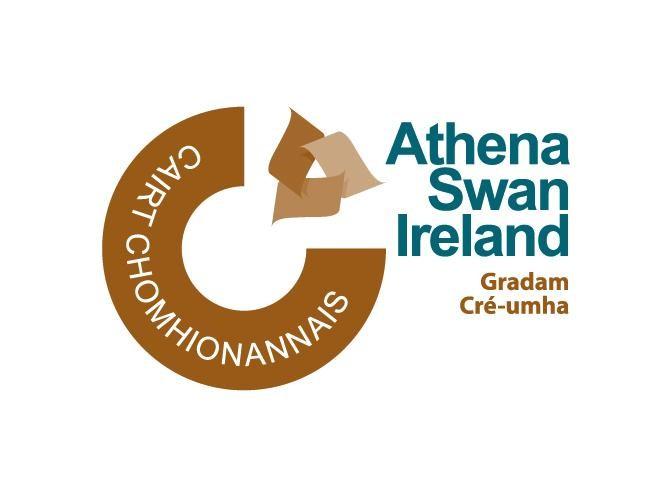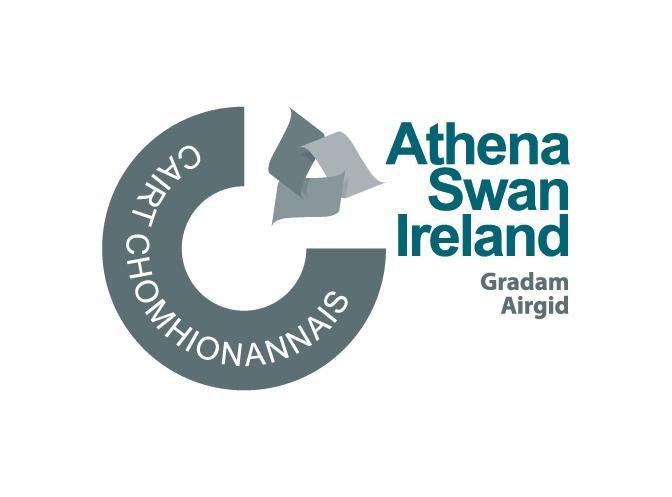Athena Swan Ireland Bronze and Silver awards were presented to more than 30 institutions or departments at an event at University College Cork this week.
Athena Swan Ireland offers a framework for progressing equality in higher education and research that is unique to Ireland. The Charter was revised in 2021 following a national consultation. It aims to support higher education institutions, academic departments, and professional units in impactful and sustainable gender equality work.
Congratulating the to the awardees, Kathryn Harrison-Graves, Executive Director, Membership Innovation and Development, said, “The awards reflect the difference that you are making…not just to those that work and learning institutions now, but for the generations that follow, so thank you for that for what you're doing for your institutions, our staff, the students and wider society.”

Dublin City University, School of Nursing, Psychotherapy and Community Health; good practice included the creation of an EDI convenor role at School Management Team level.
Dublin City University, School of Physical Sciences; good practice included the early adoption of a new Performance Review and Development process.
Maynooth University; good practice included the University setting up and hosting the National Student and Researcher (NSR) Helpdesk in 2022 during the Ukraine crisis, to provide centralised support for students and researchers coming to Ireland.
Maynooth University, Department of Experimental Physics; good practice included that the department holds a Project Juno Practitioner award from the Institute of Physics.
Maynooth University, Mathematics and Statistics; good practice included that the Department has plans to implement a shared drive platform where colleagues can voluntarily share successful grant applications. This action has been developed to formalise and expand existing unofficial practices.
National College of Art and Design, good practice included that the College has shown significant commitment to the roll out of the consent framework and bystander intervention initiatives
RCSI University of Medicine and Health Services; good practice included that in 2022, the RCSI Vice Chancellor supported a campaign led by HR and the EDI Unit which led to 90% of staff recording their ethnicity on the staff record system CoreHR. This high response rate was generated through a comprehensive internal communication campaign and increased awareness of race equality driven by the work of the RCSI Race Equality Forum.
The Economic and Social Research Institute; good practice included that a Blended Working policy was adopted in May 2022 to manage the return to the office following COVID-19 remote working. All staff were surveyed on the policy, and questions were included on gender and disability status. Findings have highlighted the success of the policy, and the pilot has been extended.
Trinity College Dublin, School of Pharmaceutical Science; good practice included the use of an external facilitator to conduct one-to-one interviews with the staff to help encourage frank and open sharing.
University College Cork, Computer Science and Information Technology; good practice included the establishment of the process which appoints a dedicated mentor to improve the experience for international students, noting the highest cohort of female students is made up of mostly of non-EU students.
University College Cork, School of Clinical Therapies; good practice included plans to create a public, patient and carer involvement panel to contribute to the learning and teaching and research agenda of the School, with a particular focus on EDI drawing on support of UCC’s Public-Patient Involvement Ignite Network.
University College Cork, School of Mathematical Sciences; good practice included the collection of the student voice during the self-assessment, including the extension of the self-assessment team to postgraduate research students.
University College Dublin, College of Engineering & Architecture, good practice included an inclusive teaching pilot programme recruited two module coordinators, resulting in a book of case studies around inclusive teaching
University College Dublin, School of Archaeology; good practice included improving support for casual staff through the creation of a designated point of contact (including a Tutor Co-ordinator and Programme Director for occasional lecturers) and invitations to School townhall meetings.
University College Dublin, School of Mathematics and Statistics; good practice included increasing the proportion of female tutors following recruitment and training actions.
University College Dublin, School of Medicine; good practice included a new EDI sub-group to develop an interdisciplinary research strategy on EDI and gender for the School, building capacity to engage other equality grounds.
University of Galway, Computer Science and Data Science Institute; good practice includes teaming up with the School of Nursing to reduce the burden of recruitment panels for female academic staff.
University of Galway, School of Biological and Chemical Sciences; good practice includes the Development of a consistent and formalised approach to managing maternity and adoptive leave, alongside a school ramp-up support fund to mitigate the teaching workload for the first semester for staff returning from leave.
University of Galway, School of Law; good practice includes plans to introduce a mentorship programme with targeted mentorship for professional staff, as results from the local culture survey identified the needs for expansion of opportunities in this space.
University of Galway, School of Natural Sciences; good practice includes open call policies for School committees, including, in future, when rotating the new Self-Assessment Team.
University of Galway, Shannon College of Hotel Management; good practice the self-assessment team Chair’s teaching time was bought out, and staff contributions to Athena Swan are recognised in the Workload Allocation Model.
University of Limerick, School of Allied Health; good practice includes, as part of a suite of actions to increase the proportion of male undergraduate applicants to PhD degrees, the School incorporated the promotion of research career paths into the Allied Health Professions programmes
University of Limerick, School of Education; good practice include that the Head of School starts all School meetings with a reminder about dignity and respect for all staff.
University of Limerick, School of Medicine; good practice includes the approach to safeguarding EDI in student populations including diversity, safe and respectful environments, inclusive curriculum and assessment.

Trinity College Dublin – institutional award
Trinity College Dublin, School of Chemistry; good practice included a combination of actions, including revisions to recruitment policies and practices, taken by the School contributed to an increase in female postgraduate student intake and a decrease in the overall postgraduate gender gap.
Trinity College Dublin, School of Natural Sciences; good practice included the creation of a specific position for School Director of Equality, Diversity and Inclusion.
University College Dublin, School of Agriculture and Food Science; good practice included plans to embed the Dignity and Respect Cultural Awareness Programme with the aim to ensure no one feels they are discriminated against on grounds of pregnancy/maternity and caring responsibilities.
University of Limerick – institutional award
University of Limerick, Department of Mathematics and Statistics; good practice includes the department co-funding of bursaries for excellent 2nd to 4th year undergraduates to undertake a summer internship funded jointly by the department. The aim is to increase the progression to PhDs from undergraduate level. As female participation had been low, a focus group with several high-achieving female students identified reasons why they did not apply; this was chiefly because their summer plans were decided in advance of the call. A change to the timing of the announcement in subsequent years led to an increase in the number of female applicants.
University of Limerick, Kemmy Business School; good practice includes the preparation of the Academic Advancement programme targeted at female academics at Senior Lecturer and Associate Professor level is now rolled out across seven universities in Ireland, with each institution having an EDI representative on the programme’s steering group.
The event included the presentation of a number of case studies about the awards including: Professor Lorraine Leeson, Associate Vice Provost for Equality, Diversity & Inclusion, Trinity College Dublin; Dr Caroline Murphy, Senior Lecturer, Kemmy Business School, University of Limerick and Liz Hughes, Head of EDI at RCSI University of Medicine and Health Sciences. (More detail about these and other case studies will be published in due course.)